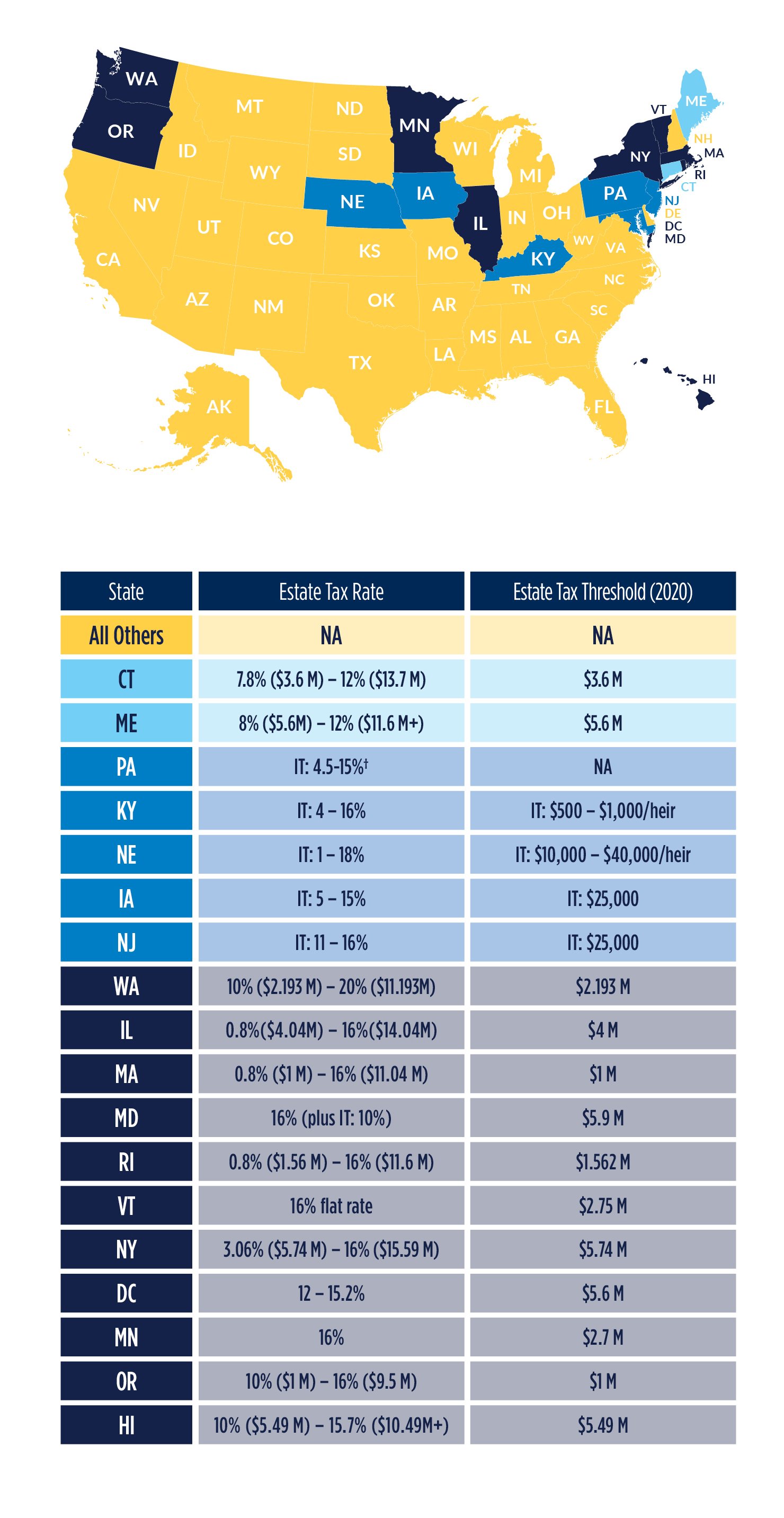
The quality of your retirement can be impacted by state-level taxes, such as income, sales and property taxes. Taxes tend to lead to inflation, meaning the cost of living trends higher in high tax states. Your spending power will thus be greater in states with low state taxes. Retiring in a state with high taxes, such as California where income taxes alone range up to 13%, means paying a large chunk of your retirement income to the state, diminishing your spending power. Consider how you plan to spend during retirement; do you prefer to make your home a vacation destination for others, or do you want to be the one travelling? If the latter, putting down roots in a small home in a state with low taxes may give you the financial freedom you want to see the country or the world.
Still another factor to consider is the taxes payable upon death, commonly called estate taxes or inheritance taxes. An estate tax is based on the value of the decedent’s gross estate (all the real and personal property the decedent owned); whereas an inheritance tax is based on the relationship between the decedent and the beneficiary. The chart on the right identifies the states with a state-level death tax. Estate taxes are highest in Washington, which currently has a 20% estate tax on estates over $11.2 million. Other tough tax jurisdictions include Vermont, New York, Massachusetts, Rhode Island, Maryland, Oregon and Hawaii. Retirees who have family in these states may benefit from maintaining a primary residence in a low tax state, with a second home in the higher tax state.
Six states have an inheritance tax: New Jersey, Pennsylvania, Maryland, Kentucky, Nebraska and Iowa. Although bequests to spouses are exempt from inheritance tax, bequests to children, siblings, nieces and nephews, cousins, or close friends may bear a high tax. Crossing the border to a state without an inheritance tax can save your loved ones hundreds of thousands of dollars. For example, a niece who inherits from an aunt who passes away in New Jersey with a $5 million estate will pay approximately $750,000 to the State of New Jersey; however, if the same aunt died a New York resident, there would be no inheritance tax liability.
Another way to take advantage of tax-friendly jurisdictions is by establishing a trust in that state. In New Hampshire, trusts are exempt from state-level income, sales and estate taxes. Consider again a woman living in New York or New Jersey with a $7 million estate. If she were to transfer her investments to a New Hampshire trust, her niece could inherit from the trust without having to pay estate or inheritance tax. Often people find that the tax savings they enjoy by establishing a New Hampshire trust more than pay for the costs and fees associated with setting up and maintaining the trust. Each individual’s circumstances are different. Working with your investment advisor and accountant, our attorneys can create a custom estate plan that will maximize your spending power in retirement and help you navigate your own retirement map.


